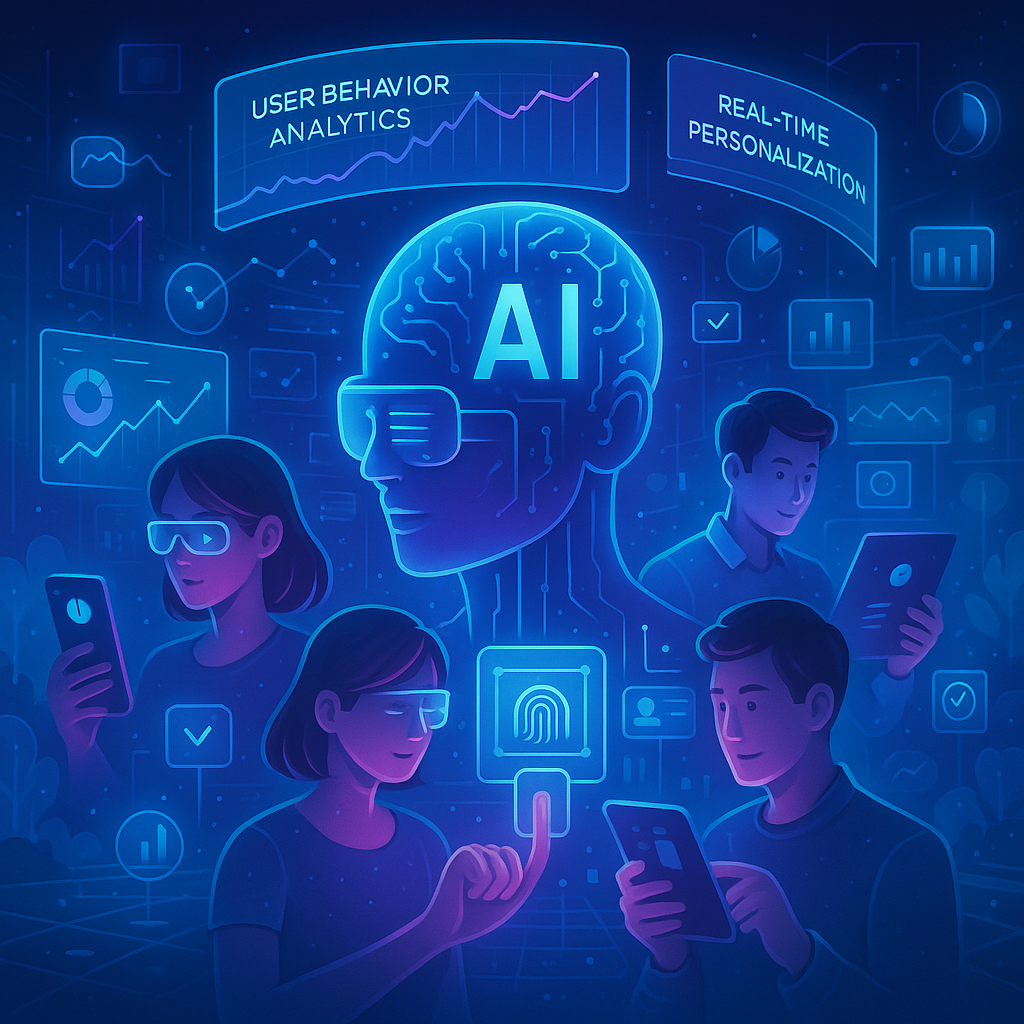In our current era, people want apps and websites to understand their preferences — it’s like having a clever helper built into every digital product. This is where AI (Artificial Intelligence) and user behavior data play a key role. Together, they make software seem smarter more useful, and more tailored to each user.
This blog aims to explain how this works why it’s important, and where it’s being used — in a way that’s easy to grasp.
🤔 What Does “Hyper-Personalized” Mean?
Hyper-personalization goes beyond just using your name or remembering what you last bought. It means the software changes in real-time based on your actions, likes, and even your habits.
Picture opening an app and it:
- Displays the content you want to see
- Recommends things you’ll need soon
- Changes design or layout to match your actions
This is hyper-personalization — a digital experience created for you.
🧠 How AI Enhances Personalization
AI helps software “learn” from users. It does this by:
- Observing how you use the app
- Spotting patterns in your behavior
- Guessing what you’ll do next
- tweaking your experience
Take Netflix, for instance. It figures out what shows you enjoy and suggests new ones. Spotify, on the other hand, proposes playlists based on your mood or the time of day.
📊 What Is User Behavior Data?
User behavior data is the info gathered when you use an app or website. This includes:
- Pages you check out
- Buttons you press
- Time you dedicate to features
- What you look for or skip
- The times of day you’re most busy
This data helps AI grasp how you use the product — so it can make your experience better as time goes on.
🧪 Real-Life Examples of Super-Personalization
🛍️ Online Shopping
- Product ideas based on your browsing and buying past
- Homepage stuff changes based on what you like
- Special discount deals or cart reminders just for you
📚 Online Learning Platforms
- Classes recommended based on your past studies
- Lessons tailored to fit your learning speed
- Alerts that match your study timetable
🧘 Health and Fitness Apps
- Exercise plans customized to your daily routine
- Goal tracking aligned with your personal targets
- Advice and encouragement tailored to your habits
🚀 How Hyper-Personalization Changes the Game
When done well customized experiences lead to:
- ✅ Increased user engagement – People stick around and interact more
- ✅ Greater satisfaction – Users feel like they’re understood
- ✅ Boosted sales and conversions – in online shopping
- ✅ Improved loyalty and retention – Users come back for the experience
🔐 What About Privacy?
Your data plays a role in personalization — making privacy a key concern.
- Apps should request permission to gather data
- Users should have the ability to adjust their privacy preferences
- Companies need to comply with regulations like GDPR or CCPA
Effective personalization should come across as helpful, not intrusive. Being open builds confidence.
🔮 What’s Coming Next?
The future of ultra-personalized software will include:
- AI that grasps tone and mood
- Apps that shift in real-time as you use them
- Smooth experiences across various devices (such as mobile, desktop, and wearables)
In the near future, software will feel less like a tool — and more like a personal assistant.
